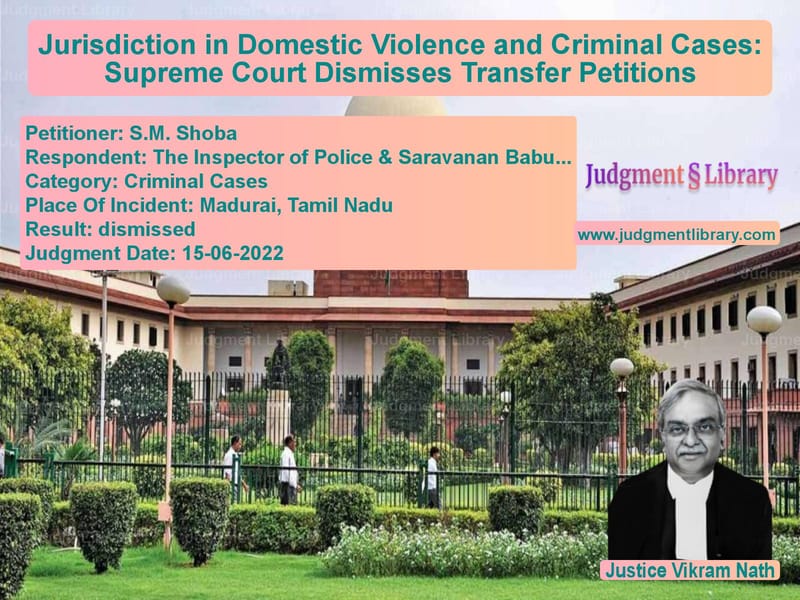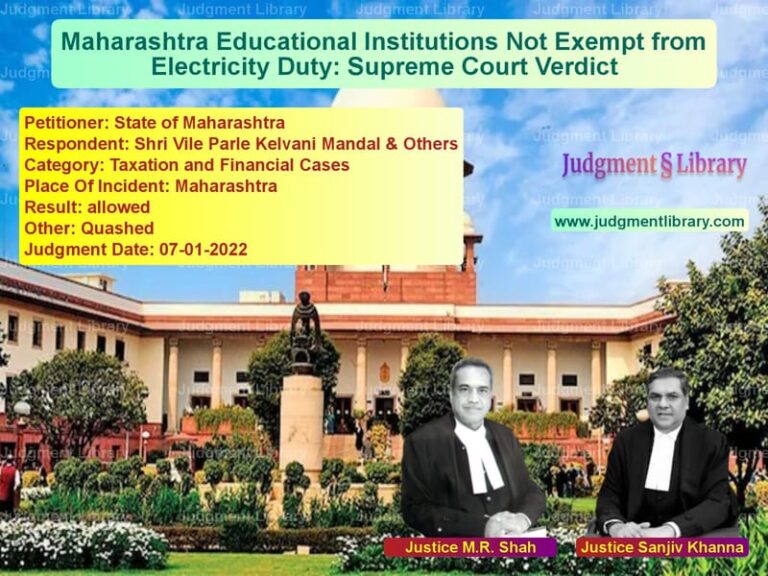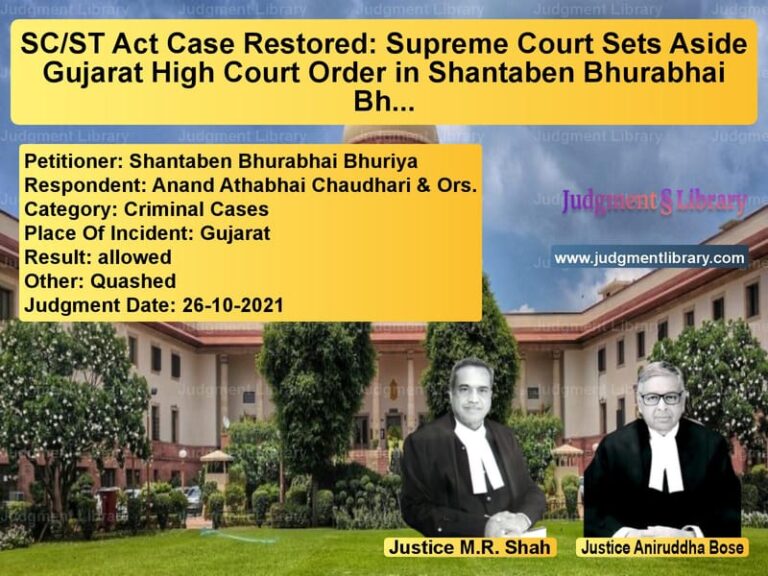Jurisdiction in Domestic Violence and Criminal Cases: Supreme Court Dismisses Transfer Petitions
The Supreme Court of India recently delivered a judgment in the case of S.M. Shoba v. The Inspector of Police & Ors., which addressed the issue of jurisdiction in domestic violence and criminal proceedings. The case involved transfer petitions filed by the petitioner seeking to shift two pending cases from Tamil Nadu to Karnataka. The ruling clarifies the circumstances under which such transfers may be granted and the importance of allowing proceedings to continue in their original jurisdiction.
The petitioner had filed for the transfer of two cases—one under the Protection of Women from Domestic Violence Act, 2005, and another being a criminal case—citing inconvenience and potential bias. However, the Supreme Court, after hearing arguments, dismissed both transfer petitions, stating that there was no compelling reason to move the cases to a different jurisdiction.
Background of the Case
The petitioner, S.M. Shoba, filed two transfer petitions under Section 406 of the Code of Criminal Procedure, 1973, requesting that her cases be moved from Madurai, Tamil Nadu, to Bangalore, Karnataka. The cases in question were:
- Criminal Case No. 631 of 2014: A case filed by the Inspector of Police, All Women’s Police Station, Madurai South, against Saravanan Babu & Others, pending before the Additional Magistrate of the Mahila Court, Madurai.
- Crl.M.P. No. 252 of 2014: A petition under Section 12 of the Protection of Women from Domestic Violence Act, 2005, filed by the petitioner against Saravanan Babu & Others, pending before the Judicial Magistrate Court (Mahila Court), Madurai.
The petitioner argued that the transfer was necessary due to circumstances that made it difficult for her to pursue the cases in Tamil Nadu.
Petitioner’s Arguments
The petitioner, S.M. Shoba, submitted the following arguments in support of her transfer requests:
- She faced significant inconvenience and hardship in attending court proceedings in Madurai.
- She feared bias in the proceedings due to local influence in Tamil Nadu.
- The cases involved allegations of domestic violence, making it necessary to ensure a neutral and fair trial.
- Transferring the cases to Bangalore would provide a safer and more accessible legal environment for her.
Respondent’s Arguments
The respondents, including The Inspector of Police and Saravanan Babu, contended that:
- The cases were lawfully filed and initiated in Tamil Nadu, where the alleged incidents occurred.
- The petitioner’s claims of bias and hardship were unsubstantiated.
- The court proceedings should continue in their original jurisdiction to ensure judicial consistency and avoid unnecessary delays.
Key Observations of the Supreme Court
The Supreme Court, in its ruling, declined to transfer the cases and emphasized the following:
“In my opinion, it won’t be appropriate at this stage to deal with respective arguments and record findings, as it may ultimately affect the parties and their pending litigations.”
The Court observed that transfer petitions should only be allowed in exceptional circumstances where it is evident that justice cannot be served in the original jurisdiction. It found that the petitioner had failed to provide compelling reasons to justify a transfer.
Final Judgment and Directions
The Supreme Court issued the following key directives:
- Both transfer petitions were dismissed.
- The cases would continue in their respective courts in Madurai, Tamil Nadu.
- No findings were recorded on the substantive issues to avoid influencing the pending cases.
Conclusion
This judgment reinforces the principle that jurisdiction must be respected unless strong grounds for transfer are presented. The Court’s decision underscores the importance of allowing legal proceedings to continue in the location where the alleged offense occurred, except in cases where impartiality or safety is genuinely at risk.
The ruling serves as a precedent for future transfer petitions, highlighting that mere inconvenience or unsubstantiated claims of bias are insufficient to warrant a change in jurisdiction.
Petitioner Name: S.M. Shoba.Respondent Name: The Inspector of Police & Saravanan Babu & Others.Judgment By: Justice Vikram Nath.Place Of Incident: Madurai, Tamil Nadu.Judgment Date: 15-06-2022.
Don’t miss out on the full details! Download the complete judgment in PDF format below and gain valuable insights instantly!
Download Judgment: s.m.-shoba-vs-the-inspector-of-pol-supreme-court-of-india-judgment-dated-15-06-2022.pdf
Directly Download Judgment: Directly download this Judgment
See all petitions in Domestic Violence
See all petitions in Judgment by Vikram Nath
See all petitions in dismissed
See all petitions in supreme court of India judgments June 2022
See all petitions in 2022 judgments
See all posts in Criminal Cases Category
See all allowed petitions in Criminal Cases Category
See all Dismissed petitions in Criminal Cases Category
See all partially allowed petitions in Criminal Cases Category







